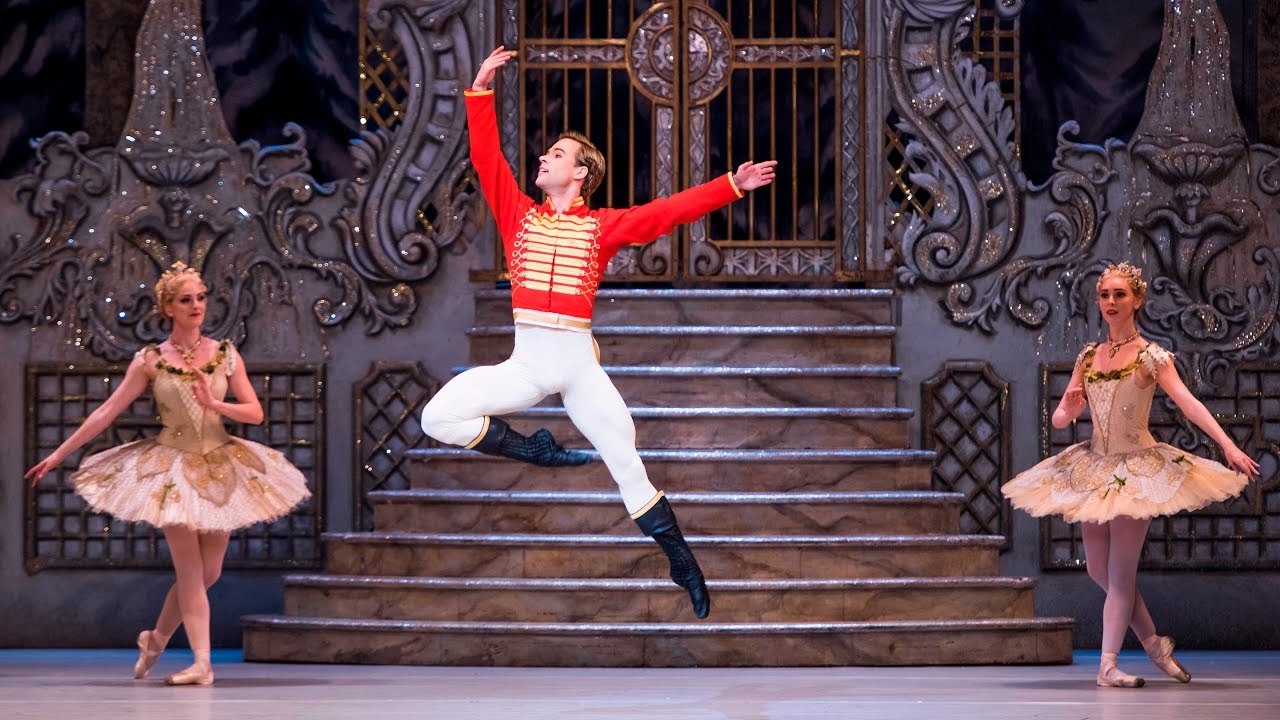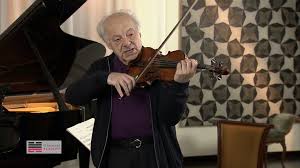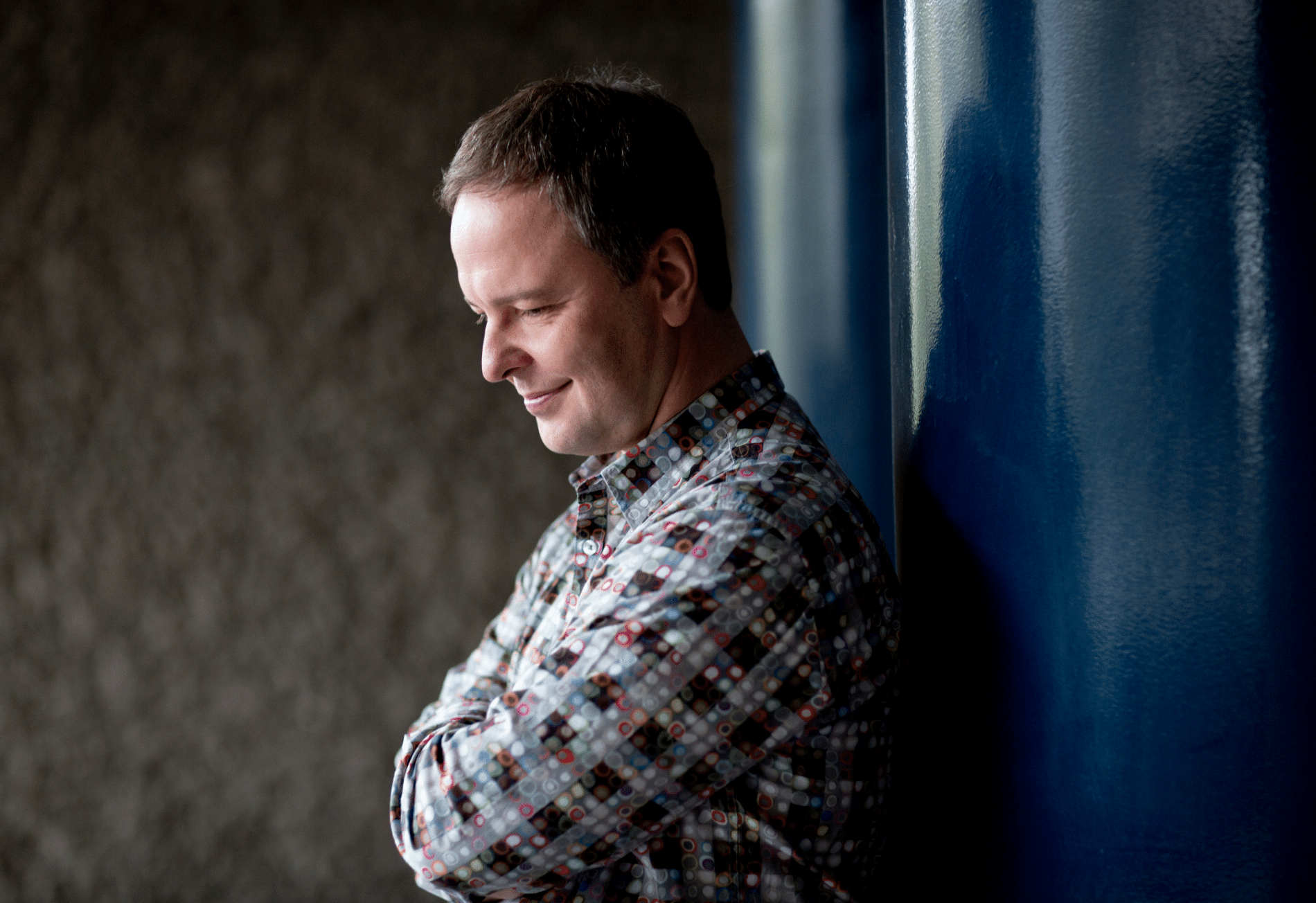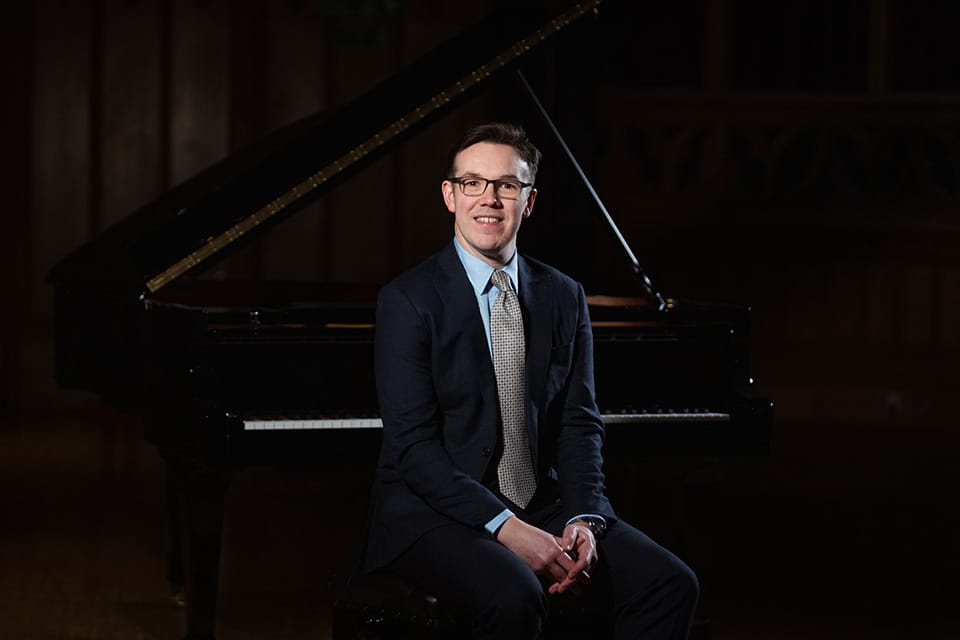Debates in the arts are being politically manipulated
OrchestrasA personal point of view from the director of the national orchestra of Brittany:
Before everybody clutches their pearls and wags their fingers about a so-called cancelation of a beloved classic (that can be tired and hackneyed even in the most lavish productions), I have just three things to say about reality. 1) Other companies are performing the Nutcracker in Berlin this season. 2) Why don’t people simply read the Staats Ballet website for their point of view https://www.staatsballett-berlin.de/en/blog/wir-lieben-den-nussknacker/118. 3) They will be programming a new Nutcracker next season!
Throughout the ages pieces are always reworked and art has always evolved in ways that are bothersome to the temple gardians. That is also why the performing arts are living and breathing entities and are not simply folkloric and fetishistic in their uniformity. The very fact the Staat Ballet has decided to take a look at 19th century stereotypes in the arts and are looking for ways to present the Nutctracker (and perhaps other works) in the future can also bring the freshness and inclusivity that we have almost all been looking for in the classical arts world, for years. This their point of view and an expression of their values.
The real problem is that these healthy debates about the arts and their role in society are all too often manipulated for obvious political reasons, many times by non-artists, on both sides of the spectrum. That leaves many arts professionals caught in fights that are not winnable for anybody and only serve to divide us further. This in turn keeps feeding the political extremes that are tearing down open our societies today.
So, how about this : Let those artists and institutions who wish to experiment, explore and ask hard questions about who we are in a contemporary world do so freely. And – let’s see the artistic outcomes and what they have to express to audiences.
In turn, let’s let those who wish to perform and produce classical arts in their purest forms do so as well, as long as everybody is admitted to the process along the way. Audiences will chose and some will even chose experimentation AND classicism. There is an absolute need for both for us to grow and evolve in a changing world.
Marc Feldman, Director Orchestre National de Bretagne






Extremely lucid letter. Well said, Marc.
Well said! Of course, it will be torn apart by both extremes.
Absolutely.
It’s a terrible problem: “debates” that is. I just told her, the one without the wobble, the one that you-know-who is meant to get under his wing. And tame her…. I said: You just go to a nice store and get a vibrator that massage therapists use, and stick it someplace, and THEN you will get a wobble….
Nutcracker = bothersome?
Let’s crack some nuts!
“ Throughout the ages pieces are always reworked” ???????
Can you elaborate?
Um….The whole point of different productions and performers is to offer reworking and various interpretations. That is at the core of the classical music industry, where the majority of the performers do not compose their original score. Do you really need elaboration there??
There is quite a difference between interpretation and reworking. The first is normal practice, the second an intervention into the work itself (like Regietheater or ballet where the plot is changed).
Reworking is like giving the Mona Lisa a modern hairdo and a jogging jacket, and a smartphone in her hand, to make the painting more accessible to contemporary audiences.
Reworking includes modern-dress or different-period Shakespeare, which can work — the McKellen Richard III, set in the 1930s, and the Baz Luhrman Romeo and Juliet both honour and illuminate the plays while opening them up to audiences that would not go to Stratford. At least before seeing these. And there are many other examples.
The single best thing I have ever seen in a theatre is the celebrated Peter brook Midsummer Night’s Dream — look it up. It did not resemble any Dream you have ever seen, but is awe-inspiring in its clarity in presenting the play.
There is a Creole Giselle that transfers the fairy tale to 1840s Louisiana, and was created in 1984 for the Dance Theatre of Harlem. It did no disservice to the original, which as Erik Bruhn interpreted it, was in fact a ballet about the class system. Long before wokery, it told the story in a way that spoke to blacks (and used black artists) and was and remains a triumph.
As I have pointed out elsewhere, comparing the arts can be tricky, and your Mona Lisa example does not work for stage productions. The latter are living; a painting IS. And the simple fact is that people speak differently than they used to, they move differently, they dress differently, and it can be very communicative — surely the point of all art — to take another look.
Choreography has definitely changed as dancer became able to do more, based on the rigorous training that has been around since the beginning but growing with exposure. Even orchestras changed, as instruments were added and orchestra size changed. Handel reworked the Messiah constantly depending upon which orchestra he was working with.
Even leaving the framework alone, choreographers have messed with the choreography of the national dances in Nutcracker and Swan for a very long time. What is dangerous here is the reason why they are looking at it again. But if some of the older versions do mock rather than present, then let them change.
What I do not want to see is the removal of the Chinese and Oriental dances. And I really do not want these people, whoever they are, bullying artists into thinking they are insulting people where no insult was ever taken before, by the very communities whose nationality is being honoured by the dances, and who have previously thought so.
Oh, and BTW, what are Otello, Macbeth, Falstaff, Sir John in Love, Béatrice et Bénédict and so many other but reworkings of Shakespeare? To say nothing of all the ballet based on R&J. Or Ashton’s The Dream, or Cranko’s The Taming of the Shrew? And we need not even start on movies. Or plays.
They are trashed by trendy “creatives” who seek to draw attention to their egos, rather than serve as channels for great art. Of all people, it was Jean Cocteau, was it not, who said that “novelty is NOT an artistic value?”
Nothing wrong with Nutcracker as long as it isn’t routine.
I agree! Thank you for this statement.
The politics and cancel culture that this industry supported vociferously and without any reservations whatsoever has come full circle and is now looking to slay our own sacred cows. You get what you vote for.
Since when has Brittany been a nation ?
The orchestra presumably receives funding from the central government.
Go to Wikipedia for Orchestre National de Bretagne. Click on footnote 4. Translate to English (through Google if necessary).
This will explain the French system of promoting regional orchestras to national status.
You’re welcome.
The orchestras in France have a top category which are called ‘National Orchestra’. So, the word ‘National’ refers not to the province of Bretagne but to their national (french) A level. Hence ‘Orchestre National de Bretagne’ or ‘Orchestre National de France’ or ‘Orchestre National de Montpellier et Langue-Doc’ or whatever name.
“Let those artists and institutions who wish to experiment, explore and ask hard questions about who we are in a contemporary world do so freely.”
Degenerate beings, completely detached from nature and their historic, ethnic and culture heritage?
Yes, that would be right. Unfortunately the outcome will be the same, as I’ve written above, but lauded and taken as having to be the new standard; with deviations therefrom seen as evil and bad.
2/10 for speling.
Behind this ‘culture war’ about inclusion, diversity, and interpretation of classics, lays another and deeper problem: how to treat musical works which were created in times so very different from our own time. In other words: what is the relevance of an old work of art in relation to modernity as it has developed since the industrial revolution in the 19th century.
With painting, this is more clear: the works are being sold for obscene prices that have nothing to do with the work itself but with capitalist ‘market value’. But nobody proposes to make changes at old paintings to adapt them to modernity. In contrary, all the modern techniques are being used to show them in the most positive and authentic way.
With music, things are very different. There is a debate going on about classical music’s relevance to modernity, where one approach is: we have to adapt performance and presentation to modern tastes, and another one is: performance and presentation should be freezed for eternity. Both positions are wrong because music when it is performed, is ALWAYS something of the present and something living (because being played by contemporary people living now) and thus, taking place in a modern context. But the freezers have one important point over the adapters: good works of art from the past have a timeless quality which survives changes in culture and society, and for that reason we should not even doubt their relevance for any ‘today’. They shed their light on the human condition, and since that condition does not change very much over time, they continue to contribute to life and to culture.
This means that questioning the relevance of works from the past is moot and should be replaced by the question of relevance of modernity where it seems to want to change the past.
The confusions about present, past and future is a typical Western problem of the concept of ‘progress’ which is so often wrongly understood as a timeline towards an ever better future. This makes people blind to erosion, decadence, destruction, suicidal interventions and funding cuts in cultural life, etc. etc. So, in the context of culture, nothing is more damaging than ideas and debates about ‘progress’ and ‘relevance’.
The questions about diversity and inclusion are much too often treated in the perspective of ‘relevance’. Which relevance, and for whom? And thus it becomes politicized.
So, be warned.
You’ve been sleeping under a rock, if you’ve failed to notice that it has actually always been highly politicized.
From the braindead interpretations of socalled classical and baroque repertoire; to the orchestras (their members), the conductors and funding and social issues.
All quite disgusting, if you start from an aesthetics- and cultural-identity- perspective.
The author of this comment has a quite personal opinion about locations and sleep habits of people he has no clue about.
Looking at art from a political point of view can only ‘reveal’ political, and no artistic aspects. The political circumstances surrounding the production of works of art dissolve after some time because they do not form a part of the work, they are temporary and part of concrete history.
Do we admire the Sistine Chapell frescos because they were meant to confirm the political dominance of the catholic church? Or is the Parthenon respected because it was meant as a triumphant gestore towards the beaten Persians? Do we love the impressionist paintings because they expressed the freedom of the bourgeois individual as opposite of state-supported salon painting? Do we perform Bach’s Brandenburg Concertos because we underwrite feudal society?
‘But nobody proposes to make changes at old paintings to adapt them to modernity’.
That is true, but they caption them using the standards of the day (when it suits them)
For example, the Gainsborough painting of Mr & Mrs Andrews was exhibited with a comment along the lines of ‘there is no evidence of the terrible conditions these landowners’ farmworkers had to live and work in’.
Oddly enough, when a portrait of Jerry Hall by Lucien Freud was exhibited, the curator didn’t write ‘this is the multi millionaires Jerry Hall, but there is no evidence of the terrible conditions refugees and asylum seekers have to face in this country’.
Indeed, when works of art are woked you get that kind of imbecile nonsense.
“The real problem is that these healthy debates about the arts and their role in society are all too often manipulated for obvious political reasons, many times by non-artists, on both sides of the spectrum.”
No need to add any comments of my own to back up Mr. Feldman’s statement — the comments so far are already confirming the truth of what he says.
I remember back in 2002, during the usual outsized battle about the always-miniscule size of the NEA budget, some Republican saying words to the effect of “Artists always say that art can help us process trauma. Well, it’s been 6 months already since the World Trade Center was destroyed, and I haven’t seen any art abut it. Where’s the art?” Sigh.
Amen to Feldman. And if we want to have intelligent discussion about the relationship of the arts to broader societal themes, let’s limit the discussion to those who have first proved they have something to say about _artistic_ content and values. Too many of the others seem to be interested in the arts only to the extent they see an opening to ride in on their hobby-horses and make complaints about something they never valued or understood in the first place. They have every right to their views, but that doesn’t mean we owe them our attention.
“”Ballet has decided to take a look at 19th century stereotypes in the arts and are looking for ways to present the Nutctracker (??)….. in the future can also bring the freshness and inclusivity that we have almost all been looking for in the classical arts world, for years”.
It’s news to me that people have been ser-ching, ser-ching (French accent deliberate) for ‘freshness and inclusivity…for years’. That sounds like propaganda straight from the politburo, disseminated by Pravda. This is where we are now; the Orwellian era of self-justification through the appropriation of language and ‘inclusivity’. The USSR regularly used the arts for propaganda and it seems western Europe now valorises this with its very own, new version. Who cares about “The Nutcracker”? Plenty more where that came from. But I DO care about authoritarianism.
And what in the world is a ‘gardian’?
“so-called cancelation – temple gardians – stereotypes –
inclusivity – political extremes – changing world”. The guy checks most of the boxes. I miss “reactionary”, but “obvious political reasons” nicely fills the gap.
If that is really his “point of view”, then he may truly be one of those who are “manipulated for obvious political reasons”.
You are part of the problem, not the solution. You are the one participating in the political manipulation of the classical arts which should always be above and beyond tawdry politics. No, the Nutcracker should NOT be re-invented. It is actually damn hard to even find a production witht the original choreography intact. You are complete artistic failure, with no sense of classicism whatsoever. Shame on you. Keep your personal views to yourself. Classical arts are beyond personal views. The only thing that keeps them classical is preservation. The new belongs to the new. Not the old.
No, those preserved stale disgustingly modernist interpretations of historic repertoire are so far removed from their original, in terms of soul, grace, wit, joy, splendor, etc.
Yes, I’m saying that what we think are preservations, are actually distorted modernist ideals, guised as being preservations.
As to the original text… I basically vomited (sorry) when I read “inclusivity”.
Yes, go ahead and criticize the original text, but do realize: things run deeper than you might suspect.
Seems to me this conversation misses the whole point. Very few ballets have the exact same choreography they started out with. I have seen dozens of Nutcrackers and Swan Lakes, the two most popular ballets in the world, in countries all over the world. They all keep the same bare bones, but they vary substantially — I vividly remember Anthony Dowell’s much acclaimed “new” production of Swan at the Royal Ballet in the late 80s, memorably designed by Yolanda Sonnabend. It was stunning — but nothing like the Kirov’s to look at, though clearly built on the same bones.
I used to see at least two and sometimes all three of Canada’s major companies — the National, Les Grands Ballets Canadiens and the Royal Winnipeg — do Nutcracker each year, and I could not have survived it if they had not been significantly different. And over the years I saw their versions altered, by new choreographers and artistic directors.
The sainted Petipa, whose version survives as the bases for most productions of both, was not the original choreographer of Swan. Anyone who has seen it a few times has been met by both the tragic and happy endings.
No, there is nothing wrong with a choreographer or artistic director deciding it is time for a new Nutcracker. What is troubling is the motivation, and the likely outcome. There is nothing wrong with the ethnic dances, and they have provided the opportunity for freshening productions for many years. But this determination to sanitise them is a new thing, part of the woke campaign, and it is likely to either eliminate them, and their music, or make a nonsense of them. Artists are no longer driven by artistic integrity but the fear of cancellation by the utterly misguided obsessions of fools. It is fatal.
It is not so long ago that it was artists and students who stood up to be counted in the face of oppression, long before the mainstream accepted their insights (the Vietnam war protests were led by students, and writers and protest singers, long before the nation as a whole wearied of a lost cause). Now students are at the forefront of the oppression, and artists are caving left, right and centre. This makes me more afraid than anything else.
Perhaps Marc Feldman should read himself the Staatsballett’s website before berating people for not doing so. The Staatsballett’s announcement doesn’t say the Nutcracker will return next season, it says “THE NUTCRACKER is on hiatus and will return in one of the upcoming seasons.” Considering the magnitude of the planed reworking, it won’t be the next season. “Since we also share the desire to show THE NUTCRACKER again, we see it as our duty to take a closer look at a number of questionable parts, because we don’t want to simply censor them!” According to them not just the Chinese Dance is “questionable”, there is more, and also according to them, replacing chunks of an original ballet as they see fit, isn’t censorship. Unsurprisingly, they (whoever they are) are very comfortable with the idea of censorship, and wouldn’t shrink back from doing what they consider censorship (cutting), should there be no other option (replacement, which they conveniently refuse to call censorship). When should we expect the replacement of choice chunks of Shakespeare’s plays according to some entitled guy’s policy?
As to other companies performing other Nutcrackers in Berlin, perhaps the people who complained had wanted to see this Nutcracker? And not one that ticks all the fashionable boxes, all unrelated to ballet?
“The real problem is that these healthy debates about the arts and their role in society are all too often manipulated for obvious political reasons, many times by non-artists, on both sides of the spectrum.” Right on the money, Marc. In case it has escaped your attention, you are doing this too. Yours isn’t any better just because you consider yourself to be an artist. I would also argue these debates aren’t healthy.